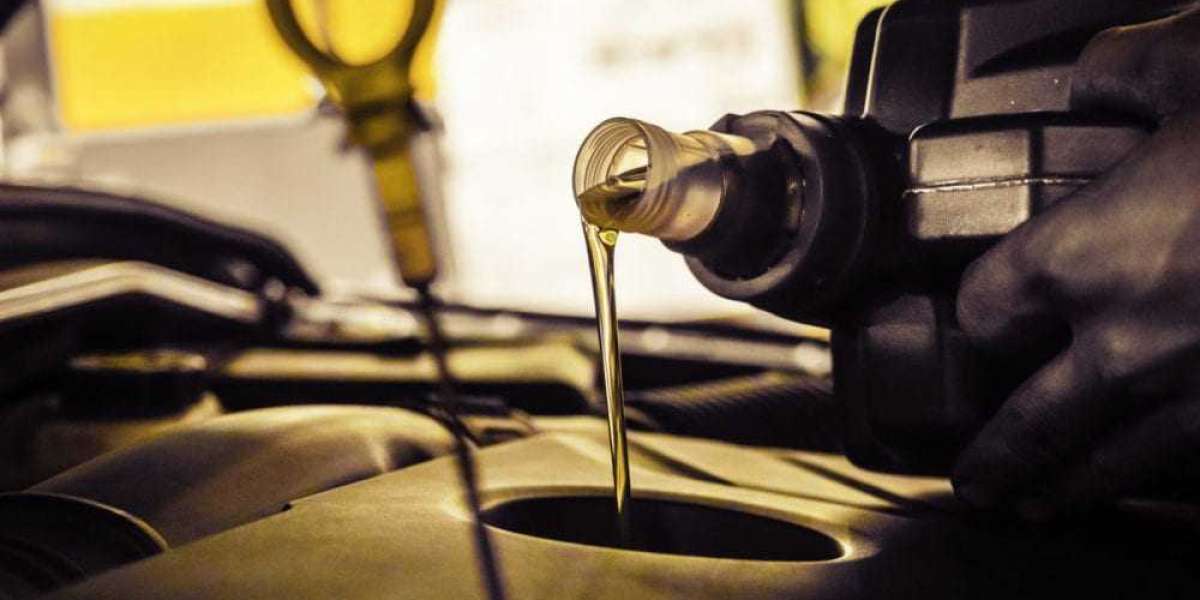Friction is the enemy of tools that want to work well and last a long time. Oils have always been very important for reducing friction, but as technology has improved and machines have to work in harsher environments, the need for more specialised oils has grown. Many businesses and suppliers are changing their advanced lubrication technology to offer custom solutions to specific problems.
These lubricants are more helpful than just lower friction. They improve speed, keep machinery from wearing out, and make it last longer. Specialty lubricants are becoming more and more important in changing harsh marine settings. As well these are required for high-performance aircraft and automotive industries. We will talk about how these advanced lubrication specialties are changing many businesses and making sure that machines can work at their best, even in the toughest situations.
Lubricants are what keep the auto industry going and driving innovation.
Lubricant technology and the auto business have always been closely linked. Lubricants are under more stress nowadays than they used to be in the past because of the changing climatic situations, and higher hot temperatures. Automotive industry sees lubricants for high-performance engines to do more than just reduce friction. They need to improve the performance, protect important parts and make the engine run more efficiently.
Modern lubricants are very important to the building of cars. They keep motor parts from wearing out, so the engine runs more smoothly and lasts longer. These special lubricants can also clean engines, stopping toxic deposits from building up that can slow them down. They help improve fuel economy by reducing friction and making the engine run more efficiently. This is important at a time when fuel costs are going up and people are worried about the environment.
Specialty lubricants are formulated to stop rust and sludge formation that weaken engine oil performance and make it less effective. They are more important to keep transmission systems in good shape so that gear changes go smoothly and deliver power perfectly.
Ultimately, specialty lubricants are necessary for the automotive business because they help cars to make them run at their best, lower their maintenance costs and make them last longer.
As the industry changes, lubricants will continue to be at the centre of new ideas, driving progress and making sure that cars will run more smoothly and efficiently in the future.
Synthetic lubricants: Improving Performance and Environmental-friendliness in the Car Business
The invention of synthetic oils was a big step forward in-car technology. These lab-made lubricants work better than regular oils made from minerals, especially when temperatures and pressures are very high. Synthetic oils keep a fluid's viscosity and make it more stable at high temperatures. This keeps the engine running at its best and protects it from damage, even in tough situations. This means that important parts like pistons, valves, and bearings will wear out less quickly, which will keep the engine running longer.
In addition, synthetic oils help save fuel by reducing friction and making engines run more efficiently. Specialised lubricants protect the electric car's drive system, and make it happen to work smoothly and efficiently.
There are the concerns about growing environmental problems, and synthetic lubricants play an important role to reduce pollution and natural resources. These lubricants are mixed with specialty chemicals and additives that make them more effective for engines and machines. These additives help cars meet strict environmental standards without sacrificing speed and make engines run more efficiently.
Because they can make cars use less gas, put out less pollution, and last longer, synthetic lubricants are a big part of making the future of the auto business more environmentally friendly and efficient.
Aviation Lubricants and Sustainability
The aviation business is working harder to have less of an effect on the environment. Air pollution is caused by emissions from aeroplane engines, which is why people are looking for long-term answers. Modern oils are very important to this effort because they help planes meet strict environmental standards.
These oils are good for the environment and good for business. The making of aircraft parts is expensive and uses a lot of resources. Specialty lubricants lower the overall cost and amount of upkeep that is needed to make these parts last longer and less likely to rust and oxidise.
A significant new invention is synthetic, high-performance oils. They offer better protection in harsh situations like high elevations and low temperatures. The engine works at its best and is reliable with such lubricants. These oils also help keep engines clean and lower the chance that parts will break, which makes flying safer and more efficient.
The Role of Lubrication in a High-Tech Future
To determine the path forward there is a need for functional lubrication in the high-tech future. The main role is played by automotive specialty suppliers, who are making it according to the demand of the hour, with keeping in mind the region, climatic conditions, model of engine and the car brands.
It is expected that the demand for specialist lubricants will continue to increase as technology continues to improve across all industries. The use of these lubricants is essential to enhancing the performance of machines, as well as their efficiency and environmental sustainability.
Electric and hybrid vehicles are becoming increasingly popular in the automotive industry, which is pushing the development of lubricants that are specifically designed for electric motors and transmissions. These lubricants also help improve the efficiency of conventional combustion engines.
The maritime industry is placing a greater emphasis on environmentally friendly lubricants that reduce the adverse effects that operations have on the surrounding environment. In addition, the need for lubricants that are able to survive harsh working conditions is more significant than it has ever been across all categories of industries.
The global market for advanced lubricants is increasing rapidly, reflecting the crucial function they play in various industries. By facilitating efficiency, lowering maintenance costs, and improving performance, specialised lubricants are contributing to the development of a future that is both more environmentally friendly and technologically advanced.








